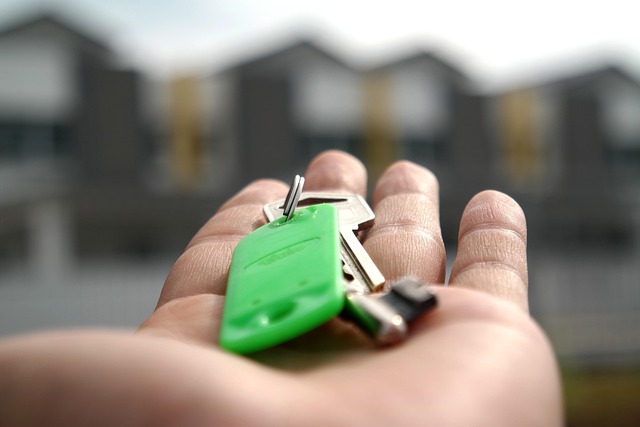Explore Affordable Mobile Homes and Trailers Available in US
Mobile homes and trailers are becoming a practical housing option in US, offering flexibility and affordability. These homes come in various sizes and designs, suitable for both temporary and permanent living. With modern features and efficient layouts, they provide a comfortable and cost-effective alternative to traditional housing.

Mobile Homes as an Affordable Housing Option
Mobile homes have become increasingly popular due to their cost-effectiveness compared to traditional housing. The average price of a new single-wide mobile home starts at around $40,000-$80,000, while double-wides typically range from $75,000-$150,000. This stark contrast to the median price of conventional homes (which exceeded $400,000 in 2023) makes manufactured housing an attractive alternative for budget-conscious buyers.
The affordability extends beyond the initial purchase price. Mobile homes generally have lower property taxes, reduced insurance costs, and more manageable utility bills due to their efficient size. Many buyers can purchase a mobile home outright without a mortgage, eliminating interest payments altogether. For those who do finance their purchase, specialized manufactured home loans are available, though they often carry slightly higher interest rates than conventional mortgages.
Various Sizes and Styles to Suit Different Needs
Mobile homes and trailers come in a wide range of sizes and configurations to accommodate different household needs and preferences. The industry classifies these homes into three main categories:
Single-wide units typically measure between 600-1,300 square feet and range from 14-18 feet in width and 66-80 feet in length. These compact options are ideal for individuals, couples, or small families seeking an efficient living space with a smaller footprint.
Double-wide mobile homes offer significantly more space, measuring approximately 1,100-2,400 square feet. With widths of 20-36 feet and lengths of 66-80 feet, these homes can comfortably accommodate larger families with multiple bedrooms and expanded living areas.
Triple-wide and multi-section homes provide even more substantial living spaces, often exceeding 2,000 square feet. These premium manufactured homes can feature custom floor plans with spacious living rooms, multiple bathrooms, and specialized areas like home offices or entertainment spaces.
Modern Amenities That Rival Traditional Homes
Today’s mobile homes have shed their outdated reputation, now featuring amenities that rival or exceed those found in many site-built homes. Modern manufactured housing comes equipped with energy-efficient appliances, contemporary cabinetry, spacious kitchens with islands, walk-in closets, and luxurious bathroom features like garden tubs.
Many manufacturers now offer customizable options, allowing buyers to select finishes, flooring, and fixtures that match their personal style. High-end models feature vaulted ceilings, recessed lighting, fireplaces, and smart home technology integration. Energy efficiency has also become a priority, with improved insulation, energy-efficient windows, and ENERGY STAR-certified appliances reducing utility costs while minimizing environmental impact.
Placement Options on Private Land
One of the significant advantages of mobile homes is their versatility in placement. Many owners choose to install their manufactured homes on privately owned land, providing greater privacy and the freedom to create a personalized living environment. This option often requires securing the necessary permits, connecting to utilities (water, sewer, electricity), and ensuring compliance with local zoning regulations and building codes.
Foundation requirements vary by location but typically include options like concrete slabs, crawl spaces, or basements. While permanent foundations may increase costs initially, they can enhance stability, energy efficiency, and even financing options. Proper site preparation, including grading, drainage solutions, and access planning, is essential for successful placement on private property.
Flexibility in Living Arrangements
Mobile homes offer unparalleled flexibility compared to traditional housing options. Their modular nature allows for easier relocation if life circumstances change, though moving costs can be substantial (typically $5,000-$15,000 depending on distance and home size). Many homeowners appreciate the ability to purchase land separately from their dwelling, spreading out major expenses and building equity at their own pace.
The manufactured housing lifestyle also offers diverse community options. Residents can choose between private land settings or manufactured home communities that provide amenities like swimming pools, clubhouses, and organized activities. Some communities cater to specific demographics, such as 55+ residents, creating tailored living environments with like-minded neighbors.
Real-World Cost Analysis and Provider Comparison
When considering a mobile home purchase, understanding the full cost landscape helps buyers make informed decisions. Beyond the purchase price, buyers should account for land costs (if applicable), site preparation, foundation installation, utility connections, transportation, and setup fees.
| Manufacturer | Entry-Level Model (Single-Wide) | Mid-Range Model (Double-Wide) | Premium Model (Triple-Wide) |
|---|---|---|---|
| Clayton Homes | $40,000-$80,000 | $90,000-$160,000 | $150,000-$250,000+ |
| Champion Homes | $45,000-$85,000 | $95,000-$175,000 | $170,000-$300,000+ |
| Skyline Homes | $42,000-$78,000 | $88,000-$165,000 | $160,000-$270,000+ |
| Fleetwood Homes | $47,000-$90,000 | $100,000-$180,000 | $175,000-$310,000+ |
| Cavco Industries | $50,000-$95,000 | $105,000-$190,000 | $180,000-$320,000+ |
Prices, rates, or cost estimates mentioned in this article are based on the latest available information but may change over time. Independent research is advised before making financial decisions.
Conclusion
Mobile homes and trailers have evolved into legitimate housing alternatives that offer affordability without sacrificing comfort or style. With their range of sizes, modern amenities, placement flexibility, and cost advantages, manufactured housing continues to grow in popularity across the United States. As housing costs rise in many markets, these versatile dwellings provide a practical pathway to homeownership while accommodating diverse lifestyles and budgets. Whether placed on private land or in established communities, today’s mobile homes represent a thoughtful solution to America’s ongoing housing accessibility challenges.




